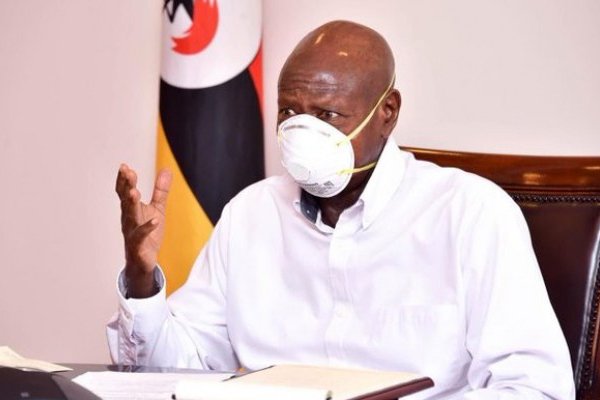President Yoweri Kaguta Museveni has announced fresh restrictions as part of measures to control the COVID-19 transmissions in the country in face of the second wave of the pandemic.
Among the fresh restrictions, the president has directed the closure of all educational institutions across the country for 42 days effective 8; 00 a.m. on June 7, 2021. Ordering that all school ongoing children should return to their effective homes in space of three days.
Prior to the announcement, there have been signs of closure of school since Friday with the ministry of education issuing a circular halting schools from receiving or sending learners at home. Unfortunately, there are some parents and schools that refused to follow the issued guideline as they normally do.
While addressing the nation on Sunday evening, the president noted that there have been increased clusters of COVID-19 infections in schools of late. On top of the ever-increasing cases, he observed that some schools were concealing cases fearing that their schools could be closed.
Currently, there are 948 confirmed cases of COVID-19 in over 43 schools and institutions of higher learning scattered in 22 districts across the country with the highest numbers of infections reported in Kampala, Oyam, Wakiso, and Masaka districts.
Before the presidential address, some educational institutions had already suspended physical learning activities to control the surging number of cases in their communities. Such schools include; Green Hill Academy Secondary School, Kyambogo University and Cavendish University.
This week, schools have been preparing to receive the last group of learners under the staggering learning system which was adopted for the academic year 2019/2020. In this arrangement, primary schools were expecting to receive P1, P2, P3, and P6 pupils while secondary schools were bound to receive S3 and S5 students.
The president’s announcement on schools means that lower primary learners might not go back to school for this academic year. The days of closure cover the eight weeks in which they were supposed to be in school to fast-track their respective class syllabi before being promoted to the next class in August when the new academic year begins.
Still, semi candidates will study the scheduled special term which had been arranged to help them cover more content that was lost. In end, the closure will father affect the already set academic dates up to 2024.
Meanwhile, the president says that if schools are reopened after the said period, all teachers will be requested to undergo COVID-19 vaccination, and those who will have shunned the jab would not be allowed anywhere near the learner.
Uganda first announced the closure of schools because to avoid the spread of COVID-19 in March 2020 sending 15 million children on unprecedented holidays. Following the closure of schools, the ministry of education came up with a response plan proposing that lessons be delivered through print and self-study home packages, recorded lessons, and live presentations on radio, television lessons, and online uploads.
However, even with the plan in place, many learners remained stranded in homes across the country with no access to study materials yet many of the families do not own television and radios to tap into the lessons that were being broadcasted.
To ensure that all learners benefit from the programme, the government promised to procure radios for all learners and television for each village. However, this idea remained in limbo as members of parliament blocked the process. URN










